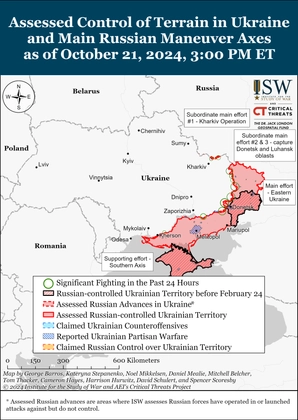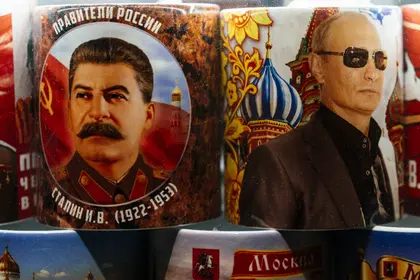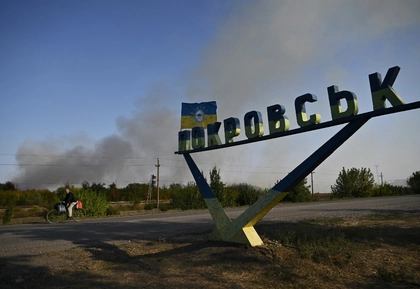Feb. 24, 2024 marks two years since Russia’s unprovoked full-scale invasion of neighboring Ukraine. The Ukrainian people remain steadfast – a recent poll found 84 percent of Ukrainians firmly reject surrendering any territory to Russia as a means for peace.
The unifying power of the war effort combined with the country’s military success has elevated Ukrainian national pride sky high, spurring their resistance. The crux of the matter, however, is pure survival. A vast majority of Ukrainians got their fierce determination to fight from the perception that they have no choice but to resist Russia’s intended genocide. This is a battle for the right to exist as a nation.
JOIN US ON TELEGRAM
Follow our coverage of the war on the @Kyivpost_official.
Russia’s genocidal behavior in Ukraine and Vladimir Putin’s genocidal objective continue to be regularly cited. In November, human rights investigators revealed new evidence charging the Kremlin with an intentional starvation crusade which appears to have been planned prior to the invasion. There have been calls for Russia to be formally charged with additional war crimes of “starvation as a method of warfare.” Allegations of weaponizing food arrived at the time when Ukrainians acknowledged a significant anniversary of a notably similar crime committed by Russia nearly 100 years ago.
In late November, Ukrainians the world over commemorated the artificial famine of the early 1930s known as the Holodomor. One of Joseph Stalin’s most infamous crimes, this purposefully arranged famine took the lives of some four million Ukrainians in less than two years. Declassified Soviet records prove Stalin’s exploits were part of a master plan to suffocate Ukraine’s desire for independent status.

ISW Russian Offensive Campaign Assessment, October, 22, 2024
Stalin’s attempt to crush Ukraine’s aspirations to statehood failed. The Ukrainian people would continue their resistance to Soviet control. Millions of Ukrainians formed the biggest group of political prisoners in the last decades of the Soviet Union’s existence and played a key role in the USSR’s eventual disintegration. Unfortunately, many unique aspects of Ukraine’s cultural heritage vanished forever during the Holodomor. Historians have labeled Stalin’s attempt to destroy Ukraine as the perfect example of Soviet genocide. Today there is a definitive scholarly consensus that defines the Holodomor as an official act of genocide committed against Ukraine.
Putin’s war on Ukraine is not only a genocidal campaign against Ukraine – it is also a campaign of genocide and forced starvation against millions of people in the poorest countries of the world.
Although the scenario is different, Putin is also using food as a weapon of mass destruction. Before Russia’s invasion, Ukraine was producing enough grain, cooking oils and foodstuffs to feed some 400 million people throughout the world. Countries like Ethiopia, Nigeria, Yemen, Somalia, Egypt and others were reliant on Ukrainian food exports to stave off starvation. Putin’s war on Ukraine is not only a genocidal campaign against Ukraine – it is also a entails potential forced starvation of millions of people in the poorest countries of the world.
Other components of Putin’s strategy are parts of his genocidal campaign, including the blocking of Ukraine’s Black Sea ports, destroying Ukraine’s granaries, planting landmines under the world’s most fertile farmland and targeted killing of Ukraine’s top farmers.
While Stalin confiscated Ukrainian grain in 1932-33, Putin is effectively removing huge amounts of food from the international export market, driving up global food prices and threatening North Africa and the Middle East with mass starvation. If more of Ukraine’s food export infrastructure is destroyed, the results could be catastrophic in the future.
Genocide is defined as the deliberate killing of a large number of people from a particular nation with the goal of destroying that nation. The “crime of crimes” targets a group’s or country’s right to exist. Historically, genocides are quite rare, making it difficult to understand its behavior. Russia-Ukraine relations are the exception – Moscow’s autocrats have committed genocide against Ukraine twice within 90 years!
Russia’s acts of brutality obscure the lines between past and present. Since the invasion, the eastern city of Kharkiv has been bombed incessantly. Residents have lost parents, husbands, children, jobs and homes. Kharkiv was also horribly affected during the Holodomor, experiencing dreadful suffering. Entire villages died out with people scared to death of hunger, fearing for their children, victims of an artificial famine.
For some Ukrainians, fully comprehending the Holodomor’s long-concealed history has been instrumental to recovering their national identity. Understanding the Holodomor for today’s Ukrainians was a major way of building an independent state free from aggression and dictatorship.
Learning from history also holds a dire warning for the West. In spite of arduous Soviet attempts to hide information about the Holodomor, a few brave journalists sounded the alarm as the genocide occurred. In November 1933 US President Franklin Roosevelt chose to ignore news reports, personal appeals and diplomatic confirmation and officially recognized the Soviet Union for economic interests and realpolitik.
These days, numerous Western leaders maintain that Putin cannot be permitted to replicate Stalin’s crimes. However, Ukrainian President Volodymyr Zelensky’s pleas for more extensive aid to oust Russian forces and finally stop this cycle of violence are not being fully answered. Ninety years after the Holodomor, Western leaders have the occasion to institute life-saving retribution to the Ukrainian people who are fighting both the memories and vicious realities of two Kremlin dictators.
The views expressed in this opinion article are the author’s and not necessarily those of Kyiv Post.
You can also highlight the text and press Ctrl + Enter






